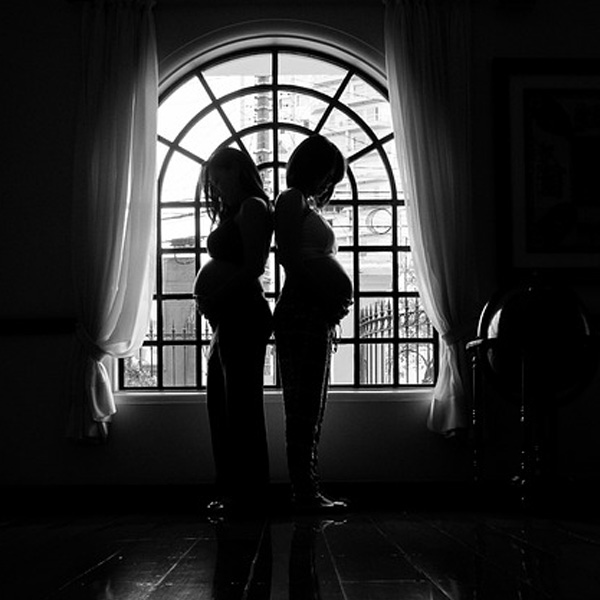The bumpy path I’ve been traveling down, writing my fourth novel, has been a long one. Indecision has clung to me like a leech. Fortunately, I was recently able to free myself from its nasty suckers and move forward. The new book is entitled The Hiding and should be out in early summer. In the most simple of terms, it is the story of a man who is hiding in an unexpected place for undisclosed reasons. But nothing is ever simple, and we quickly learn that he is not the only one hiding something.
The whole concept of hiding took me back to my childhood. There are simple and understandable things we hide: weight, age, income. But the most interesting secrets—the hidden things, are much more complex. Our misdeeds. Our embarrassments. Our flaws. Our pain. As I wrote my first novel, My Name is Edward, I had an editor question my manuscript, asking me what I was hiding…why I wasn’t forthcoming. It’s fiction, I told her. But she knew it came from a very real place, and sensed that I was holding back, depriving the reader of what they deserved. Honesty. I listened, learned, and did a lot of rewriting. Exposing part of myself and my history didn’t come easy. But in the end, it was freeing and created deeper connections with my readers.
It also snagged a memory of something I’d stored away for many years. Something that was all about hiding. The Live-in Girls.
I was a child of the 60s and of parents who were awkwardly entering the new era of peace, love, and freedom. The counterculture. They were thirty-something adults, young parents even by the standards back then, and they were caught between two diametrically opposed decades. The 50s and the 60s. Their struggle to straddle these different eras was evident and visible to all, including their confused children. I watched as they slowly let go of their more respectable life, one that included the cliché white picket fence, family dinners, and church on Sundays. My stepfather’s Oxford dress shirts were soon replaced by Nehru jackets, and my mother’s navy blue, Laura Petri slacks were taken over by bellbottoms. And partying became the norm.
By the mid-60s, my mother had traded in her apron for a brief case, entering the world of real estate. With my stepfather also working (off and on), I became the appointed babysitter for my younger brother, along with being saddled with cleaning and caring for the dogs. Then one day, my mother announced that we were bringing in help. Live-in girls, she called them. Unwed mothers. It’s a term I personally hate but was the accepted term in those days.
These girls were typically in their teens, pregnant and unattached. This was, of course, before the legalization of abortion in 1973. Their options were limited. In the case of the women who came to live with us, they had all chosen adoption. There were social service organizations that handled, not only the adoptions, but finding these women families to stay with during their pregnancies. Homes from away from home where no one would discover their secret. Simply put, they helped them go into hiding.
My mother thought it was a marvelous idea to provide cover for them, along with free room and board. They, in turn, would provide help with the house, babysitting etc. I guess that today they call that a win-win. I have another name for it.
Through the years, we had more than a few girls come to live with us, typically moving in around their third or fourth month of pregnancy. There was Barbara who was painfully shy and struggled to acclimate to her new home. Not only was she going through an agonizing time in her life, but my parents were an acquired taste, and clearly not hers. Barbara wore plaid wool skirts, even in the summer, and black ballet flats. I never got close to her, but I felt for her deeply. I sensed her sadness. There was Lynn who was a beautiful girl but terribly self-conscious due to acne scarring. I loved Lynn and appreciated the way she let me in, allowing me to feel the baby kicking, talking about what gender we thought the baby was, discussing names–though she would never get to name it. But it all changed after she gave birth. As I watched her pack up her things, I saw the pain in her eyes. And, I had pain of my own. I was losing a friend. There was Pat, a girl who wore ultra short, and handmade, baby doll dresses. And she suffered from dermatillomania. Face picking. I didn’t know it back then, but it was clearly was a result of her anxiety. There was Jackie, my absolute favorite of all the girls. She was a vampish red head who knew how to do makeup and loved teaching me her tricks. When she left, I was devastated. Fortunately, for us, but not for her, she returned a couple of years later. Pregnant again. There was MaryJo who rolled in like a thunderstorm. She liked to exercise in her room naked, leaving the door open just wide enough for me and my brother to get a peek. There was Joyce who came from an impoverished family up North. She never smiled, laughing with her mouth tightly pulled over her deteriorating teeth. By the time she left, my mother had talked her in to getting dentures. And then there was Judy.
Judy, like the rest of them, came to hide under our roof until her baby was born. She had choppy, poorly-cut hair, wore wire-rimmed glasses, had noticeably pale skin, and could be most aptly described as a plain Jane. Her attitude was anything but plain. I watched as she weaseled her way into our lives, becoming my mother’s new best friend, and the center of attention. I’d watch as the two of them would sit and chat for hours, smoking Benson & Hedges or Virginia Slims, suddenly feeling like an outsider in my own home. After Judy had her baby, she stayed in touch, even visiting my mom on occasion. She had gone from help to guest. Though I was just ten years old, I intuitively knew that something wasn’t quite right. One night, my feelings were validated.
My parents were having one of their wild parties. And while I was tucked in my bed trying to tune out the loud music blaring from downstairs, I heard Judy taking someone into the guest room where she was staying. It wasn’t but minutes later that I found myself trying to tune out the loud moans and groans….of her and my stepfather going at it.
It would be difficult for anyone to process, but at ten, I was mortified. Somehow I managed to get a hold of myself and flew down the stairs, squeezed through all guests, and found my mother. Guests were pulling at me, asking me to play a tune on the piano, begging me for a kiss. They were oblivious to what was going on upstairs, to what I had heard. To the horror I was feeling. I felt like I was drowning in a sea of drunks, none of whom knew my entire life had just been turned upside down.
As I followed behind my mother, who seemed to be leaping up the stairs, my limbs trembled like branches in a bad storm. She directed me to my room, where I quickly became an invisible audience member. My mother was destroying Judy with every four-letter word in the book, and Judy was screaming at her to let go of her hair. My father seemed to be a bit player in the whole drama, not saying much…or nothing intelligible, anyway.
Several minutes later, I watched out my bedroom window as a cab whisked Judy away.
Through all the girls that lived with us–including the ones I liked and ones I didn’t, there was one thing that always troubled me. Something no one would talk about. Certainly not to me.
Where had all the babies gone?
My mother never shared much with me, and when the girls returned to pack up their things and return to their homes, I sensed it wasn’t right to ask questions. And while I didn’t know their pain, I felt some of my own. I had grown attached to their babies, watching them grow as the weeks and months unfolded. Talking about them. Guessing their gender. Waiting for their arrival.
But, in the end, it was about hiding. Until they no longer had to.







11 Comments
This is going to be really great.
Thank you, Jack.
Excited for the upcoming book, it sounds like another winner! You really have found your calling.
Thank you, Kay.
FYI…this was me responding with Kirk’s credentials. Still learning to use this system.
I can’t wait for this book!! You are amazing to share your life with us through your incredible writing!
Thank you Nina. It’s been a rough ride. New genre.
I’m so excited. I was absolutely mesmerized reading this. I can’t wait for the new book. Thank you Annmarie for sharing so much of your life with us. God has given you great gift.
Thank you, Amanda.
Beautifully done!
This story will expose the pain and difficult decisions that young women were forced to make and most of the time decisions were made for them. A dark time for women and I hope we don’t have to deal with it again. It should be another important story that Annmarie Topel brings into the light of day.